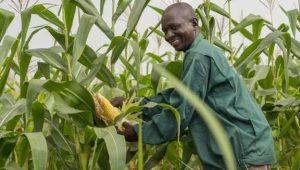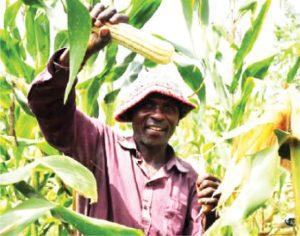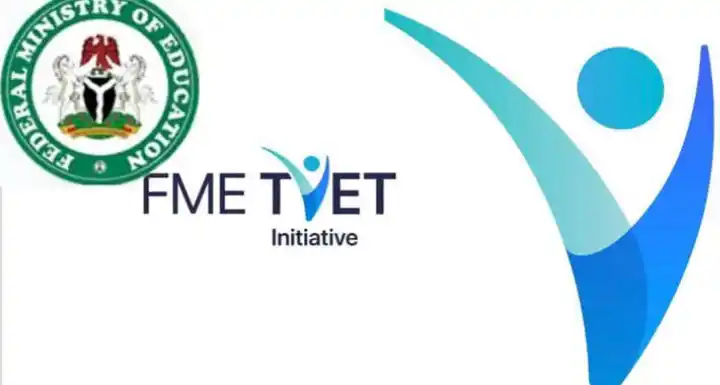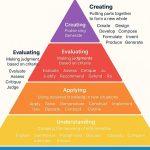
FG’s Agricultural Curriculum to Boost Food Security and Youth Interest in Agritech
The Federal Government of Nigeria has rolled out reforms to reshape agricultural education in Nigeria, aiming to address pressing food security challenges and equip young people with the skills needed for modern farming. The Federal Ministries of Education and Agriculture & Food Security have collaborated to introduce a new Agricultural Curriculum Framework under President Bola Ahmed Tinubu’s Renewed Hope Agenda. This framework is designed to modernise curricula, attract youth into agriculture, and align with the kind of agricultural innovation needed for national growth.

Why Nigeria Needs a Modern Agricultural Curriculum
Despite large government investment, enrolment in agricultural degree programmes has been falling sharply. According to the 2024 UTME (Unified Tertiary Matriculation Examination) data, nearly 47.92% of admission slots allocated to agriculture remained empty. This suggests serious mismatches between what educational institutions offer and what young Nigerians believe is relevant or profitable.
Growing Interest in Vocational and Technical Agricultural Training
- Technical and Vocational Education & Training (TVET) applications in recent cycles reached over 900,000.
- More than 210,000 applicants opted for livestock farming specifically.
- Agricultural courses overall rank close to garment making, which saw about 260,000 applicants—showing youth are excited about practical trades, but perceive agriculture as outdated.
Linking Agricultural Education to Food Security Goals
Food security in Nigeria is under threat when educational output does not meet agricultural needs. A stronger curriculum that produces graduates with practical competencies in modern farming, climate-smart agriculture, and agribusiness is essential to reduce dependency on food imports, improve local production, and ensure resilience in the face of climate change.
Features of the New Agricultural Curriculum Framework
Integration of Agritech and Climate-Smart Farming
The revised curriculum will embed contemporary technologies and sustainability practices, such as:
- Precision farming tools (e.g., drones, sensors, satellite imagery).
- Climate-smart farming methods to manage water use, soil conservation, and carbon footprint.
- Digital platforms and apps to connect farmers with markets, extension services, and input suppliers.
Hands-On Learning, Internships, and Industry-School Partnerships
- Mandatory internships with agribusinesses, research institutes, and production zones.
- Field training modules: crop production, livestock management, agribusiness ventures.
- Partnerships across universities, polytechnics, vocational schools, and private sector actors to ensure graduates are industry-ready.
Value Addition and Export-Oriented Agriculture
A key component is teaching not just primary production, but the processing, packaging, branding, and marketing of agricultural products. Lessons drawn from Benin’s model of cotton processing are especially relevant. In Benin, the Glo-Djigbé Industrial Zone (GDIZ) has enabled local processing: spinning, weaving, dyeing and garment manufacturing. It now produces finished cotton goods internationally. 0
Bexportedenin’s Cotton Processing Model as a Template
Recent reports show that Benin’s cotton sector is going through a transformation: the country is targeting local value addition rather than raw export. Some key facts:
- Benin’s expected cotton output for the 2024-2025 season is about **669,000 tonnes**, surpassing neighbouring Mali. 1
- The GDIZ industrial zone processes around 40,000 tonnes of cotton per year, generating 7-10 million garments annually. 2
- Finished products exported include clothing items, towels, and other textile goods to European and African markets. 3
Lessons for Nigeria’s Agricultural Curriculum Reform
- Investment in processing infrastructure can multiply economic value (export more finished goods rather than raw crops).
- Linking farmers to industrial zones ensures that educational modules reflect what is needed on the ground in agribusiness and manufacturing.
- Policies such as bans on raw exports (or incentives to process locally) help shift the sector toward higher value chains. Benin’s approach shows this works when backed by investment. 4
How the Reforms Align with the Renewed Hope Agenda
Special Agricultural Processing and Production Zones
Under the Renewed Hope Agenda, the Nigerian government is establishing Special Agricultural Processing & Production Zones. These zones are meant to:
- Add value locally by processing produce.
- Create new value chains for exports.
- Generate employment for youth in both farming and agribusiness roles.
Market-Driven Education & Youth Employment
One of the critical goals is to ensure that agricultural education produces graduates who are employable, entrepreneurial, and innovation-oriented. Instead of purely theoretical knowledge, emphasis will be on marketable skills, business understanding, and tech integration.
Challenges in Implementing the Agricultural Education Reforms
Infrastructure and Resource Gaps
- Poor access to reliable power, modern laboratories, greenhouses, mechanised tools.
- Lack of proper processing and storage facilities (handling post-harvest losses is a major issue).
- Weak connectivity (internet, digital tools), especially in rural areas where many agricultural schools are located.
Capacity of Educators and Institutions
- Need to retrain teachers in agritech, modern farming methods, digital literacy.
- Updating curricula across universities/polytechnics to ensure consistency and relevance.
- Ensuring assessment, pedagogy, and industry exposure are aligned with global best practices.
Funding, Policy, and Regulatory Support
- Securing sufficient budgets at federal and state levels to build infrastructure, subsidize training, and maintain new programmes.
- Policy coherence to support value addition, local processing, export facilitation, land acquisition, incentives for investors.
- Regulatory oversight and quality assurance to ensure graduates meet industry standards.
Changing Perceptions Among Youth and Society
For years agriculture has been seen as low prestige or risky. To attract young Nigerians:
- Success stories and role models in agribusiness must be highlighted.
- Media campaigns showing profitable, tech-driven agriculture.
- Entrepreneurship incentives, grants, startup support for young agripreneurs.
Expected Impacts of the Agricultural Education Reform
Boosted Youth Participation & Enrolment
With updated curricula, practical modules, internships and clearer value for agricultural careers, enrolment in degree programmes and TVET within agriculture are expected to rise. This helps reduce the percentage of unfilled slots.
Strengthened Food Security and Reduced Import Dependency
- Local production increases in staple crops, livestock, fisheries.
- Reduced needs for imported foods, lowering vulnerability to global supply chain shocks.
- Better post-harvest handling and processing reduce waste, improve food availability.
Job Creation, Agribusiness & Economic Diversification
Value-chain growth from processing, packaging, export and agritech will open up many roles beyond traditional farming; for example:
- Technicians for precision agriculture tools.
- Managers in agribusiness enterprises.
- Supply chain & logistics specialists.
- Product development, marketing, export operations.
Export Growth and Value Addition
By processing raw produce into finished goods, Nigeria can capture much more value. Drawing from Benin’s experience, exporting processed agricultural products (textiles, packaged food, branded goods) rather than raw materials vastly improves trade balance and foreign exchange earnings. Refer to Benin’s GDIZ for examples. 5
What Stakeholders Must Do to Realise These Reforms
Government Commitments
- Allocate adequate funding for infrastructure, teacher training, digital tools, and production zones.
- Ensure policies and incentives favour value chains, exports, local processing (e.g. tax breaks, ease of doing business).
- Set up measurement & evaluation systems to track enrolment, graduate employability, production output etc.
Role of Educational Institutions
- Update curriculum content in line with the framework; integrate agritech, sustainability, entrepreneurship.
- Invest in practical facilities: farms, labs, greenhouses, processing units.
- Partner with industries for internships and real-world exposure.
Private Sector & Agribusiness Participation
- Create opportunities for students: internships, mentorships, R&D collaboration.
- Invest in processing, export, and value-chain infrastructure.
- Support innovation (startups, local tech solutions) and sustainable practices.
Youths & Community Engagement
Youths must see agriculture as a rewarding field. They should:
- Engage in agripreneurship, startups, farming cooperatives.
- Demand modern education, participate actively in classrooms, internships.
- Leverage digital tools, social media, ag-apps to access information, markets, networks.
External References & Further Reading
- African Development Bank’s $2.2B Support for Nigeria’s Agriculture — details on how agro-processing zones are being funded to reduce post-harvest losses and boost value chains. 6
- Benin Seeks Home-Grown Cotton Revolution — insight into Benin’s transition from raw export to local textile production. 7
- Cotton Transforming Benin Economy — statistics on cotton output, industrialisation, export of cotton finished goods. 8
- Mobile Technology: A Panacea to Food Insecurity in Nigeria — Case Study of SELL HARVEST Application — shows how digital tools can be leveraged to enhance agricultural productivity and food security. 9
Conclusion: Building a Technology-Driven Agricultural Future in Nigeria
Reforming agricultural education in Nigeria is not just an academic exercise — it’s foundational to achieving food security, economic diversification, youth empowerment, and export competitiveness. The new Agricultural Curriculum Framework and related initiatives under the Renewed Hope Agenda create a path toward a future where education, industry, and innovation intersect. With committed stakeholders, modern infrastructure, and a mindset shift that values agriculture as a high-impact field, Nigeria can transform its agricultural sector into a source of prosperity for millions.








